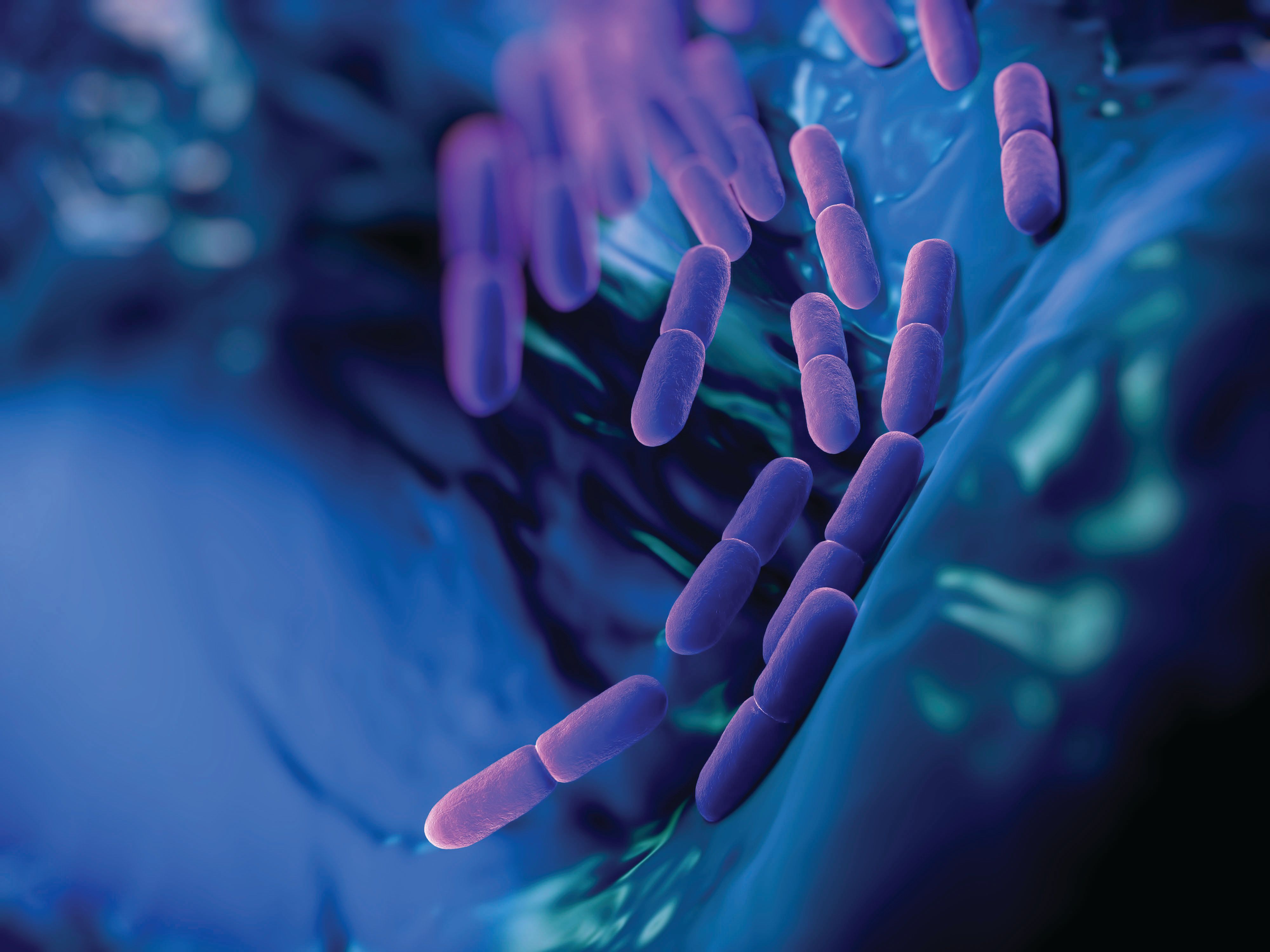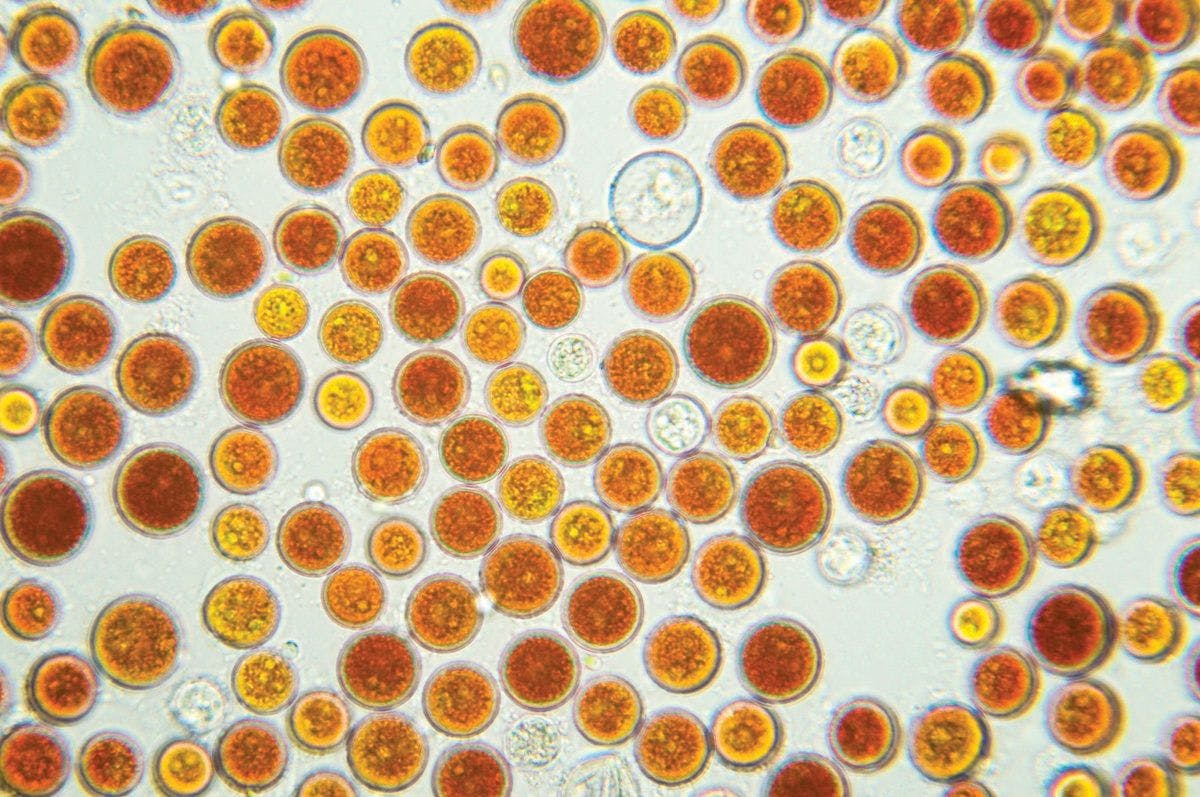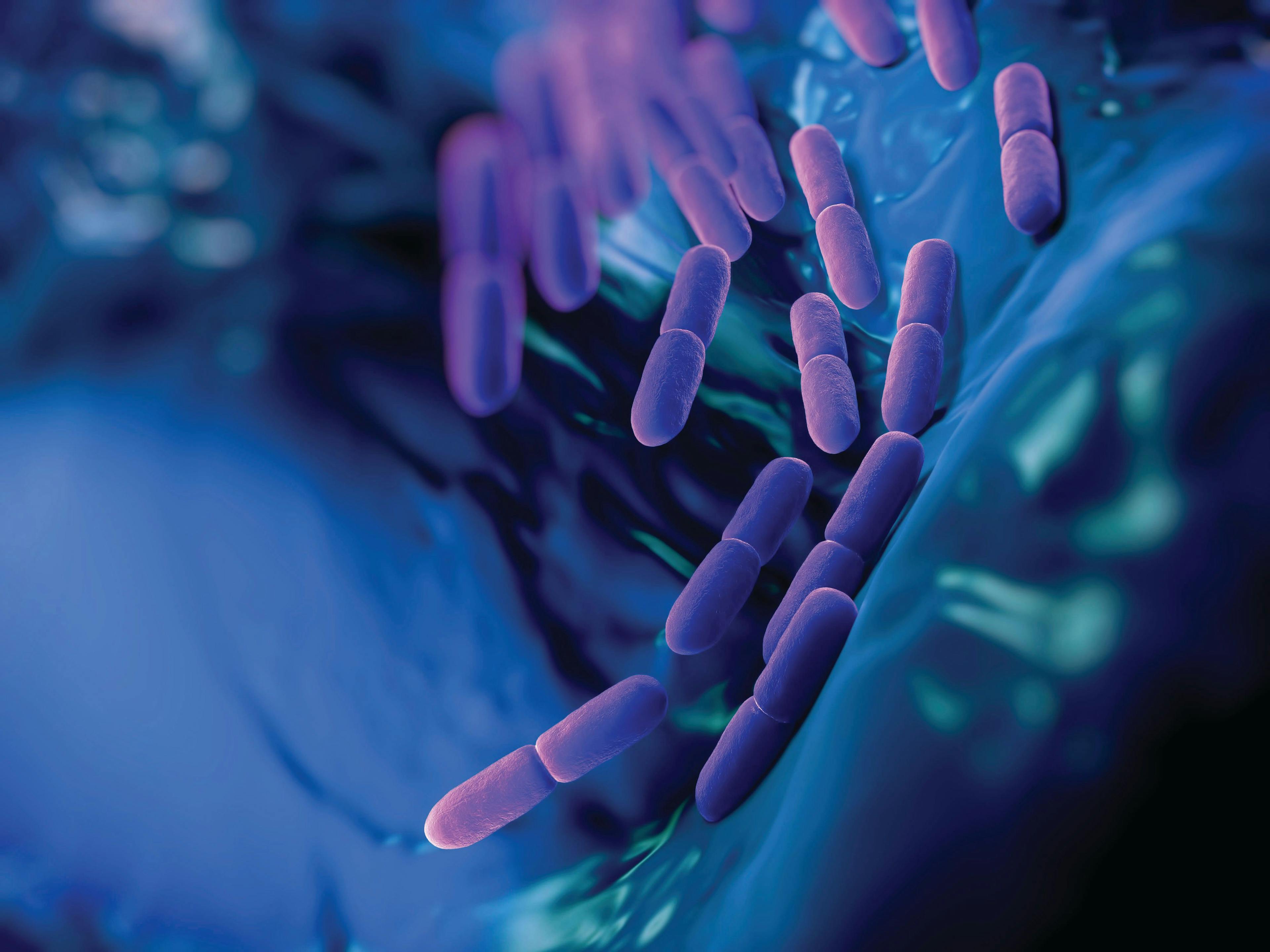A 2016 Update: Promising New Science on Probiotics
The seemingly endless relationship between bacteria and good health hints at just how limitless a future probiotic market could be.
Photo © iStockphoto.com/royaltystockphoto

When the food and dietary supplement industry thinks of probiotics, it should think less about a “digestive health” banner and more about the myriad ways bacteria influence our bodies. The seemingly endless relationship between bacteria and good health hints at just how limitless a future probiotic market could be, and not just for humans.
Scientists have published hundreds of studies on probiotics and health. The following are just some of the latest.
Digestive Health
But first, if history is any guide, probiotic research will continue to focus on digestive-health disorders. A wealth of such research has already taken place, with many positive outcomes, and more is underway. In recent years, government bodies have even granted a few related health claims.
Back in 2014, DuPont Nutrition & Health (Madison, WI) earned Europe’s first probiotic health claim for HOWARU Bifidobacterium lactis HN019, in Switzerland specifically. Here, manufacturers can promote the ingredient as “supporting digestion by reducing [stool] transit time.” Meanwhile, DuPont Nutrition & Health continues its probiotic research in this and other health fields, with still much to learn.
More recently, Lesaffre Human Care (Milwaukee) got the okay from Health Canada for a health claim for Saccharomyces cerevisiae, known commercially as ibSium. A single-capsule dose of ibSium can label locally as “Helps to reduce abdominal pain and discomfort associated with irritable bowel syndrome [IBS].” The claim is backed by a 2015 clinical trial1 on 179 IBS sufferers, in which eight weeks of ibSium consumption was linked to greater improvement in abdominal pain than placebo, and without stool modification. A more recent trial2, on more subjects and a higher probiotic dose, found a higher number of bowel movements and a trend towards softer stool with ibSium use, compared to placebo, within a subset of constipated subjects. In an interview with Nutritional Outlook, Lesaffre said it’s considering another ibSium study only on IBS sufferers with constipation, and it should be implemented very soon.
While probiotics are showing signs of digestive utility on their own, another option is to combine them with doctor-recommended pharmaceutical drugs, where situations arise. Sabinsa Corp. (East Windsor, NJ) presents this possibility in a study published last December on Bacillus coagulans MTCC 5856, a probiotic strain better known as LactoSpore. When 36 subjects with diarrhea-predominant IBS were assigned to 90 days of LactoSpore or placebo, alongside pharmaceutical drugs domperidone and esomeprazole, LactoSpore users reported significant decreases in bloating, vomiting, diarrhea, and abdominal pain, as well as improved stool frequency, compared to subjects using the drugs alone.3 The result is complemented by a rat study4, published this February, linking this good bacterium to anti-diarrheal activity.
While studies continue to churn out, with various durations and doses of probiotic consumption, Chr. Hansen (Hørsholm, Denmark) recently finished what it says is now “the largest dataset ever” published on probiotics and bowel function in healthy subjects. In the study5 on more than 1200 subjects who reported low defecation frequency and abdominal pain but who were otherwise healthy, Bifidobacterium animalis subsp. lactis, or BB-12, was linked to improved bowel regularity in just four weeks, compared to placebo. The research for Chr. Hansen continues and, as with most probiotics, requires further elucidation of the mechanisms of action.
Metabolic Health
How gut bacteria may affect weight gain and metabolism is a subject less understood, but a fascinating one, nonetheless. With the continual rise of obesity and metabolic disorders among consumers, this particular area of research could be a boon for probiotic ingredient suppliers and product manufacturers. A few probiotic strains are already exhibiting potential in the category.
DuPont Nutrition & Health is exploring probiotics and diabetes management with a bacterial strain known as Bifidobacterium animalis subsp. lactis 420, or B420. After a 2014 study6 on obese mice linked B420 consumption to decreased fat mass and weight gain, and improved glucose tolerance, the company established a human study in hopes of corroborating that result. More than 200 overweight adults were assigned to consume B420, with or without a polydextrose prebiotic, or placebo for six months. The B420 human study is now complete, and DuPont Nutrition & Health plans to communicate the results this spring.
Another probiotic making headlines in weight gain and metabolism research is Lactobacillus reuteri SD5865, a strain cultivated by Nutraceutix (Redmond, WA). In a 2015 study published in Diabetes Care7 and previously covered by Nutritional Outlook, glucose-tolerant subjects consumed L. reuteri SD5864 in yogurt for four weeks daily. While the duration of probiotic consumption may not have been enough to yield noticeable changes in body mass or composition, it was linked to a marked stimulation of factors relating to glucose metabolism and insulin secretion, such that may be of benefit to those with glucose intolerance or type 2 diabetes.
Could studies like these be just the tip of the iceberg for probiotic research on metabolism? “I think we will have to wait and see,” says Tony Blanch, QA and corporate services director for Nutraceutix, “but as diabetes is so related to digestive and absorptive metabolism functions, I believe it is likely we will continue to get new and surprising findings in this field.”
STORY CONTINUES ON PAGE 2
Women’s Health
Beyond mother’s milk, good bacteria help women in other gender-specific ways, and probiotic consumption may be a part of many solutions.
Chr. Hansen already has a handful of studies in the books for Urex, its oral-dose combination of Lactobacillus rhamnosus GR-1 and Lactobacillus reuteri RC-14. Throughout the last several years, Urex consumption in women has been associated with better-than-placebo recovery from vaginosis8, alone or alongside drugs9,10, and increased efficacy of antifungal drugs prescribed for yeast vaginitis11. By increasing counts of healthy bacteria in the vagina, particularly Lactobacilli species, the vaginal microbiota is getting an added defense against pathogenic bacteria.
This Urex logic and science was enough for South Korea to give Urex a probiotic claim for women’s health in 2014. Still, ongoing studies on the probiotic combo are expanding into other areas of female sexual health, like urinary tract infections, bacteriuria, and even pregnancy.
Maj Britt Larsen, a scientific advisor at Chr. Hansen, says that increasing knowledge has shown that probiotics may assist in preventing pregnancy complications, such as preterm birth. “Prior to initiating these clinical studies,” she adds, “it was important to link the documentation of safety, as well as efficacy, in non-pregnant women.”
Elsewhere in Lactobacilli findings, scientific posters presented at this year’s Probiota conference link consumption of Lactobacillus fermentum CECT5716 to reduced incidence of mastitis in lactating women, and SymbioVag, a suppository of Lactobacilli and inulin, to a lessening of vaginosis over 10 days of use.
Anyone interested in the ongoing science on female health and probiotics should explore the upcoming event “Women and Their Microbes,” a scientific conference on female health and probiotics taking place in Amsterdam this June.
Immune Health
Since a considerable amount of the human immune system resides in the human gut, researchers are actively exploring whether probiotics can, from the gut, influence very general immunity. Logically, some have centered on the illnesses that humans are mostly familiar with, including the common cold and flu.
Although a few trials have linked probiotic consumption to reduced incidence of respiratory illnesses, such as one using a strain sourced from Japanese pickles12, other trials have provided more modest results, like reduced duration of cold or flu. In June 2015, a Chr. Hansen study13 on 1104 adult subjects found that flu-vaccinated subjects who consumed milk with a probiotic ingredient (Lactobacillus paracasei subsp. paracasei 431, or L. casei 431), compared to placebo, experienced an average shorter duration of upper respiratory illness symptoms. Multiple other studies in recent months have found similar outcomes with other probiotics.
Since elderly subjects are especially vulnerable to illness, some probiotic studies have targeted this population specifically. Last year, Ganeden Biotech Inc. (Cleveland) announced findings from a study14 on probiotics and the elderly, which found that its GanedenBC30 strain (Bacillus coagulans GBI-30, 6086) improved beneficial bacteria counts in the human gut, as well as production of anti-inflammatory cytokines in an elderly population. Months later, Lesaffre Human Care published a study15 on 100 seniors with history of winter infections. They were assigned to consume Bacillus subtilis CU1 or a placebo in crossover fashion for four months. In a subset of 44 people, probiotic use wasn’t associated with reduced sickness frequency, but it was linked to significantly stimulated production of secretory immunoglobulin A (SIgA) in human feces and saliva. SIgA is an antibody that has been shown to decrease in production during states of high mental or physical stress.
Exercise
The notion that probiotics may benefit exercise is not as steeped in research as some other health-related areas, but small signs suggest probiotics may have an impact here, especially since exercise and immunity are closely related. When 16 resistance-trained men were assigned to consume a capsule containing probiotics (Bifidobacterium breve BR03 and Streptococcus thermophilus FP4) from Probiotical SpA (Novara, Italy) or a placebo for 21 days prior to “muscle-damaging exercise,” probiotics “likely attenuated” performance losses at 24, 48, and 72 hours post-exercise. The results were presented at the Probiota probiotic conference held earlier this year.
More recently, results of a study16 published online by Applied Physiology, Nutrition, and Metabolism suggest that the probiotic strain Lactobacillus helveticus Lafti L10, from Lallemand–Institut Rosell (Montréal), reduced the duration of respiratory infections in athletes better than placebo, over 14 weeks. Self-reported athletic vigor was also higher in probiotic users compared to placebo users at the end of the study.
STORY CONTINUES ON PAGE 3
Fermented Dairy Beverages
Understandably, not all consumers want to swallow a probiotic pill. For these cases, fermented dairy drinks, such as kefir, offer alternatives for ingesting probiotics. Science on these drinkable products is ongoing, albeit still somewhat limited.
A systematic review17 of skin-health studies on fermented dairy products, published last summer, found “early and limited evidence” that these products may improve skin health when ingested or applied topically. Months later, an isolated clinical trial18 on 67 adults linked consumption of a kefir beverage to a reduction in inflammatory C-reactive protein after exercise.
Livestock
As useful as probiotics may be for humans, livestock can also benefit, and not just with increased performance. Chr. Hansen’s newly acquired livestock probiotics, through its purchase of the U.S.-based Nutritional Physiology Company, reportedly increase chicken egg output, among other uses, and experts with Phileo Lesaffre Animal Care’s “The Farm” research initiative, announced last summer, say their probiotic-containing yeasts increase milk yields and feed efficiency while also helping livestock digest their food (primarily fiber). Probiotic ingredients can improve the welfare of livestock in multiple other ways, like requiring less antibiotic use, and, according to a recent Lallemand study19, reducing the temperature in cow rumen, which would reduce the stress and labor associated with resulting health evaluations.
Although so much about probiotics is still left to uncover, these are telling indications of what they can do for man and animal.
Sidebar: Probiotic Capsule Avances
Aside from exploring probiotics for their potential health benefits, some companies instead devote their time to ensuring proper delivery of these bacteria into the body.
Capsugel (Morristown, NJ) already has a technology for delivering acid-resistant capsules into or near the intestines, and it’s a solid option for probiotics. The DRcaps hard capsule system, however, was only available for powders-until recently. Last fall, the company announced that its technology can now accommodate liquids, making it the industry’s “first fully vegetarian, acid-resistant capsule for liquids.”
Sidebar: Probiotics...for Antibiotics?
Antibiotic use is often associated with short-term side effects, including digestive issues. But what about potential for long-term side effects? If antibiotics have any chance of disturbing the balance of bacteria in the body, for instance, might this warrant concomitant use of probiotics when antibiotics are absolutely necessary?
Researchers in the Netherlands are trying to figure this out, with infants as their subjects. In a currently recruiting study (ClinicalTrials.gov identifier NCT02536560) planned for 450 infants, 150 will be exposed to antibiotics (by hospital protocol, due to “high suspicion of perinatal infection”). Over a year’s time, researchers will assess each infant for coughing, wheezing, rash, food allergy, and various other symptoms that might indicate a compromised immune system, as well as differences in fecal microbiota. If infants exposed to antibiotics exhibit inferior outcomes, this might warrant consideration of probiotics alongside antibiotics in infants and other developing humans.
“These findings can be important,” write the researchers in their outline, “since there is evidence that manipulation of the infant microbiota, by using pre- or probiotics, can restore the ecological balance of the microbiota and may mitigate potential negative effects on the developing immune system, when use of antibiotics cannot be avoided.”
Also read:
Microbiome and Emerging Research to Unlock Probiotic Mysteries?
Are Probiotics Moving Beyond Gut Health?
References:
- Pineton de Chambrun G et al., “A randomized clinical trial of Saccharomyces cerevisiae versus placebo in the irritable bowel syndrome,” Digestive and Liver Disease, vol. 47, no. 2 (February 2015): 119-124
- Spiller R et al., “Randomized double blind placebo-controlled trial of Saccharomyces cerevisiae CNCM I-3856 in irritable bowel syndrome: Improvement in abdominal pain and bloating in those with predominant constipation,” United European Gastroenterology. Published online August 21, 2015.
- Majeed M et al., “Bacillus coagulans MTCC 5856 supplementation in the management of diarrhea predominant irritable bowel syndrome: A double blind randomized placebo controlled pilot clinical study,” Nutrition Journal. Published online February 27, 2016.
- Majeed M et al., “Evaluation of anti-diarrhoeal activity of Bacillus coagulans MTCC 5856 and its effect on gastrointestinal motility in Wistar rats,” International Journal of Pharma and Bio Sciences, vol. 7, no. 1 (January 2016): 311-316
- Eskesen D et al., “Effect of the probiotic strain Bifidobacterium animalis subsp. lactis, BB-12®, on defecation frequency in healthy subjects with low defecation frequency and abdominal discomfort: A randomised, double-blind, placebo-controlled, parallel-group trial,” The British Journal of Nutrition, vol. 114, no. 10 (November 28, 2015): 1638-1646
- Stenman LK et al., “Potential probiotic Bifidobacterium animalis ssp. lactis 420 prevents weight gain and glucose intolerance in diet-induced obese mice,” Beneficial Microbes, vol. 5, no. 4 (December 2014): 437-445
- Simon MC et al., “Intake of Lactobacillus reuteri improves incretin and insulin secretion in glucose-tolerant humans: A proof of concept,” Diabetes Care, vol. 38, no. 10 (October 2015): 1827-1834
- Petricevic L et al., “Randomized, double-blind, placebo-controlled study of oral lactobacilli to improve the vaginal flora of postmenopausal women,” European Journal of Obstetrics, Gynecology, and Reproductive Biology, vol. 141, no. 1 (November 2008): 54-57
- Anukam K et al., “Augmentation of antimicrobial metronidazole therapy of bacterial vaginosis with oral probiotic Lactobacillus rhamnosus GR-1 and Lactobacillus reuteri RC-14: Randomized, double-blind, placebo controlled trial,” Microbes and Infection, vol. 8, no. 6 (May 2006): 1450-1454
- Martinez RC et al., “Improved cure of bacterial vaginosis with single dose of tinidazole (2 g), Lactobacillus rhamnosus GR-1, and Lactobacillus reuteri RC-14: A randomized, double-blind, placebo-controlled trial,” Canadian Journal of Microbiology, vol. 55, no. 2 (February 2009): 133-138
- Martinez RC et al., “Improved treatment of vulvovaginal candidiasis with fluconazole plus probiotic Lactobacillus rhamnosus GR-1 and Lactobacillus reuteri RC-14,” Letters in Applied Microbiology, vol. 48, no. 3 (March 2009): 269-274
- Waki N et al., “Effects of probiotic Lactobacillus brevis KB290 on incidence of influenza infection among schoolchildren: An open-label pilot study,” Letters in Applied Microbiology, vol. 59, no. 6 (December 2014): 565-571
- Jespersen L et al., “Effect of Lactobacillus paracasei subsp. paracasei, L. casei 431 on immune response to influenza vaccination and upper respiratory tract infections in healthy adult volunteers: A randomized, double-blind, placebo-controlled, parallel-group study,” The American Journal of Clinical Nutrition, vol. 101, no. 6 (June 2015): 1188-1196
- Nyangale EP et al., “Bacillus coagulans GBI-30, 6086 modulates Faecalibacterium prausnitzii in older men and women,” The Journal of Nutrition, vol. 145, no. 7 (July 2015): 1446-1452
- Lefevre M et al., “Probiotic strain Bacillus subtilis CU1 stimulates immune system of elderly during common infectious disease period: A randomized, double-blind placebo-controlled study,” Immunity and Ageing. Published online December 3, 2015.
- Marinkovic D et al., “Lactobacillus helveticus Lafti® L10 supplementation reduces respiratory infection duration in a cohort of elite athletes: A randomized double-blind placebo-controlled trial,” Applied Physiology, Nutrition, and Metabolism. Published online March 17, 2016.
- Vaughn AR et al., “Effects of fermented dairy products on skin: A systematic review,” Journal of Alternative and Complementary Medicine, vol. 21, no. 7 (July 2015): 380-385
- O’Brien KV et al., “The effects of postexercise consumption of a kefir beverage on performance and recovery during intensive endurance training,” Journal of Dairy Science, vol. 98, no. 11 (November 2015): 7446-7449
- DeVries TJ et al., “Modification of the feeding behavior of dairy cows through live yeast supplementation,” Journal of Dairy Science, vol. 97, no. 10 (October 2014): 6499-6510























